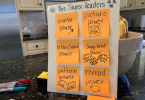By Sabrina Schnur
BU News Service
Jeff Riley will take on his new role of state education commissioner this June after being elected by the executive board last week.
He will leave his position of more than six years as superintendent of Lawrence Public Schools where principals said he took the worst performing district in Massachusetts and turned it into a positive environment for students, teachers, parents and the community.
Riley’s work in Lawrence led to an increase in graduation rate of nearly 20 percent from 52 percent in 2011 and a decrease in dropout rate by more than half according to documents from Lawrence Public Schools. In addition, the number of Latino and Lawrence-resident teachers more than doubled during Riley’s time in the position.
“When I first came to the district, I was focused on three things: 1) opening up ‘white space’ for schools by clearing out former top-down policies; 2) identifying what was working in the district and expanding on it; 3) introducing schools to new practices I had seen work effectively to lift student achievement,” Riley said in a document he wrote and distributed to the district community in 2014.
Nelson Butten, director of community, family and student engagement, said Riley held stakeholder focus groups and found a need for a family center which Riley felt could be located somewhere within the school district.
“The family resource center is to increase access, information or knowledge about available resources in the community and not just for academic stuff but also for financial stability, housing, anything and everything,” Butten said. “The family resource center also houses the homeless liaison for the district, the foster care point of contact and the family engagement team.”
Butten said by working with several different affected stakeholders they have recognized a community who values furthering students’ success.
“We did a recent survey of employees … and the survey shows everyone values family engagement,” Butten said. “High quality family engagement is not just coming to PTO’s and listening passively, it is more than coming to bake sales, it’s also partnering with schools and administrators to make sure our students are successful.”
Lori Butterfield, principal of South Lawrence East Elementary School, said that prior to Riley, the district had no direction, which is why she recognized Riley’s vision of growth to a more successful future as helpful.
“He took a few months to observe and watch and listen and get a feel for the district and then the real big changes started to occur that spring when we had to start making our school plans for the following year and that’s when we started to see a lot of the changes that define his leadership,” Butterfield said.
Butterfield said Riley worked on a reward system, allowing well-performing schools to gradually to gain more autonomy in how they wanted their school run. Soon, all schools had autonomy as long as they showed good growth rates.
“His goal was always, no matter what our end of year proficiency rates were, he really focused us on meeting our growth targets,” Butterfield said. “If you’re meeting those growth targets you’re starting to close those gaps. So, you could be a school that didn’t have tons of kids proficient and advanced but they were making really large gains in their growth.”
Butterfield said community agencies became a big part of the school week with groups coming to school and some grades even leaving to visit different organizations in the city.
“Our third and fourth graders were going to the boys and girls club every Friday,” Butterfield said. “Our first and second graders were staying at the school but we were having all these community partners, all these local organizations come in and work with our kids so there was definitely this community feel that we’re all working together in this common goal for our kids.”
Colleen Lennon, principal of Wetherbee School, said the autonomy granted by Riley allowed her to run the only K-8 school in the district different than the elementary or middle schools in the district.
“It really allowed schools to kind of run based on what their needs were versus the top down … leadership [that] kind of facilitates and determines what your needs are,” Lennon said. “Even though we have commonalities in our schools, we also have differences.”
Lennon said the focus on hiring more Latino teachers has impacted her students positively and added more diversity.
“If you read any research studies you’ll see that when Latinas have Latinas then they can really connect,” Lennon said. “I’m always looking for some people that are bilingual [or] bicultural because I think they add a lot to the teaching force and those are the kids we teach every day.”
Lennon said the planning process has been altered too, having representative voices of all kinds prepare curriculum and give a voice to the students.
“The teacher leadership team, which was an initiative that [Riley] brought in, there’s teachers’ voices around the table and its cross-representative of the grade levels and the special ed. teacher,” Lennon said. “We make decisions side-by-side which is really how you should lead schools.”





